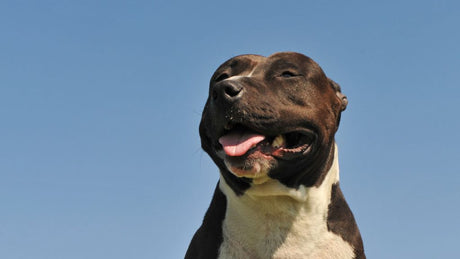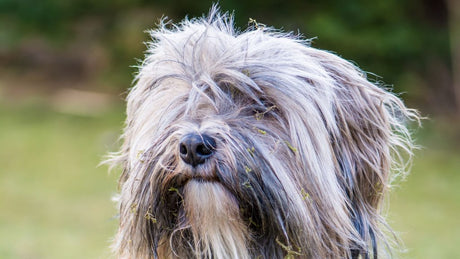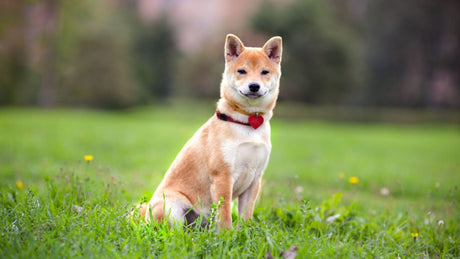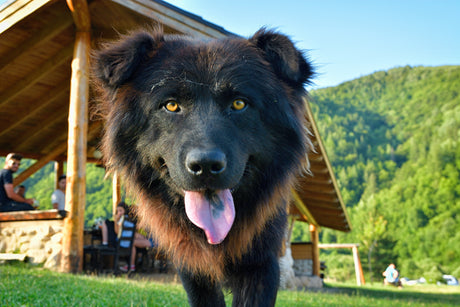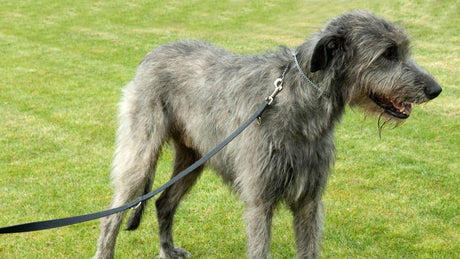Many people like to share food with their pet, without knowing the consequences that this can bring. Although sometimes it is not something serious, it can be counterproductive for the dog's health , especially if it is unknown which foods can cause serious harm. That is why today we dedicate this article to the fruits that dogs can eat, in detail.
Different species of dogs must eat different foods, especially during their growth stage. But it is always good to get your pet used to eating fruits that can provide energy, vitamins or fiber . We recommend consulting a veterinarian to guide you through the entire canine feeding process.

It is important to note that there are fruits and vegetables that can be harmful or toxic. That is why good information and research should be a priority. And even more so when something new is introduced to the diet of the animal, which is carnivorous by nature.
Fruits that dogs can eat
Including fruits in your dog's diet can be a good idea . Whether as a snack or reward, or as part of the daily meal, it can be a positive change in your dog's health. These are the fruits that you can add to your menu.
- Apples . Dogs can eat apples without any problem. You just have to be careful with the seeds since they contain a minimal amount of cyanide that can be dangerous in the long run. We recommend cutting them into small cubes and removing the seeds.
- Bananas or plantains . They are easy to digest and their smell is striking for dogs. A few pieces of banana daily can provide a number of important vitamins for the well-being of your puppy.
- Pear . Containing 80% water, it is the ideal fruit for your dog and even more so on hot days or in summer. It will refresh your puppy while providing it with the necessary nutrients and the dose of energy needed for everyday life. It is undoubtedly one of the best snacks you can share with your pet.
- Handle . Although it may seem a little strange, mango provides Vitamin A that helps hair and skin growth. It is necessary to note that, for dogs, mango has a very strong smell so not everyone may be attracted to that fruit. We recommend combining it with other fruits to camouflage its aroma.
- Coconut . Coconut is perhaps the fruit that provides the most minerals and vitamins to dogs. It is a natural antioxidant and also helps digestion, as well as internal cleansing of toxins through urine.
- Watermelon . Watermelon is another example of fruits that dogs can eat. By containing a lot of liquid, it helps maintain freshness on days with high temperatures.

Toxic fruits and vegetables for dogs
Just as there are natural foods that are good for canines, there are also fruits or vegetables that can be harmful.
- Cherries . While the fruit itself is not dangerous for dogs, it is not recommended as the seeds contain amounts of cyanide that cannot be digested by the pup. These seeds can cause multiple respiratory problems or even death for your pet. Although this can be avoided by removing the seeds, we recommend not including this fruit in your daily diet.
- Onion or garlic . These foods can affect your dog's health and even more so if they are fed in high quantities. They are dangerous as they can destroy red blood cells in canines and cause anemia. These vegetables can cause serious respiratory problems and tachycardia.
- Avocado . Indigestion is the main problem that avocado can cause in dogs' bodies. It contains a substance ( Persina ) that is even harmful to many domestic and wild animals.
- Grapes or raisins . These fruits cannot be digested easily and cause irreversible damage to the kidney system. This is perhaps the most dangerous fruit and should be kept away from dogs since its smell is striking.
- Gooseberries . The level of toxicity is similar or similar to that of grapes. They can cause irreparable kidney problems and damage the entire digestive system over time.
- Fungus . Problems caused by ingesting mushrooms can be fatal. 90% of mushrooms are harmful to your dog.
We recommend going to the vet if you suspect that your dog has consumed any of the aforementioned fruits or vegetables. Remember that dogs, especially puppies, are very curious and are guided by instinct.
Some recommendations
The inclusion of fruits and some vegetables in the dog's diet can be relevant if you want to give a different touch to your pet's diet. As we already said, fruits can help raise your dog's defenses and add nutrients.
It is important to highlight that fruits should not be included as the main food . Remember that they are a complement that can be provided as part of an appetizer or some reward. Prudence in including new elements to the dogs' diet is vital. Your dog's diet should be based on high-quality feed that provides all the necessary nutrients.

You must also be careful about your dog's behavior and likewise in the way your pet evacuates. If you consider that there is a significant change in routine or behavior, you can consult the veterinarian or simply suspend the inclusion of natural foods in your dog's diet.
If the fruits you are going to feed your puppy have bones or seeds, you should be careful. Canines often swallow fruits in large pieces and end up having trouble digesting them. This without leaving aside the fact that they can be toxic. That is why we advise you to cut each fruit into small cubes to facilitate digestion and prevent bones or seeds from being ingested.
Dogs are NOT herbivorous animals and that is a factor that can change the way they see things. Do you still have more questions about this topic? Don't worry, you can write to us, we are always attentive to your comments.
Other articles that may interest you:


